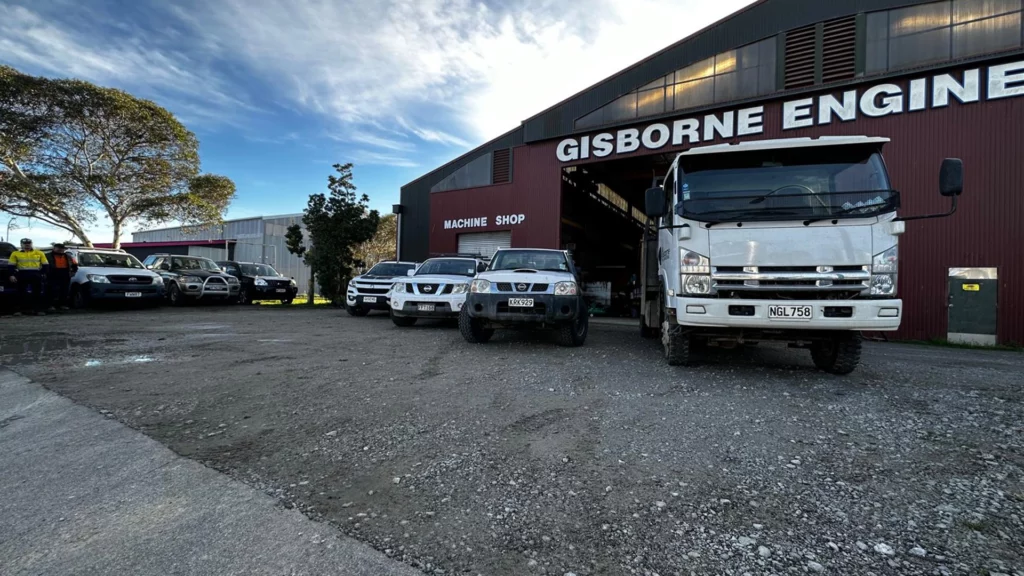Digital transformation will help Gisborne Engineering reduce costs for our clients
With rising materials and labour costs, innovation and efficiency have become our focus to support our clients to optimise processes, reduce costs and grow their business during challenging economic times. In this 3-part case study developed over 6 months we will dive into our journey not only to revolutionise Gisborne Engineering through technology and automation but to move into a future of long-term partnerships to sustainable growth.
This case study is broken down into 3 parts:
- Part 1: The unique challenges faced in a mechanical engineering business and the problem we were trying to solve.
- Part 2: Finding the right solution and implementation process
- Part 3: Define the measurable results, outcomes and realised financial benefits.
The implementation of Workshop Productivity & Scheduling Software was driven by ambitious goals that resonate with every business owner, empower efficiency and reduce costs. The heart of Gisborne Engineering’s mission is clear – to help our partner clients grow their businesses, by not only reducing costs but also elevating the quality of their products.
Our goal is 20-40% decrease in labour time
By leveraging the power of software and automation we are targeting a 20% to 40%+ decrease in job times, translating into substantial labour cost savings for our clients.
The path to transforming a paper based engineering business into future, technology led business isn’t without its share of challenges which Gisborne Engineering is facing head-on during a complex economic climate.
Part one of the case study outlines the core business challenges we are looking to solve at Gisborne Engineering and defines the measurable goals and outcomes of this project.
Below is the list of core business challenges we are looking to solve in the face of global uncertain financial outlook:
Limited Visibility of Daily Activities:
The lack of clear visibility into daily tasks and activities of staff hindered effective management and resource allocation. Without a way to monitor ongoing work, it became challenging to ensure optimal productivity and identify areas for improvement to pass these cost reductions on to clients.
Budget Overruns on Projects:
Projects frequently exceeded their budgeted costs, leading to financial strain and reduced profitability. A lack of real-time tracking and monitoring made it difficult to address budget deviations in a timely manner.
Loss of Gross Profit due to Rework and Miscommunication:
Rework and communication breakdowns resulted in unnecessary expenditures and a decline in gross profit. Absence of streamlined communication channels led to errors and revisions, affecting project timelines and profitability for ourselves and clients.
Inability to Maximise Resources and Productivity for Cost Reduction:
The challenge of optimising resource allocation and productivity made it hard to reduce costs for clients while maintaining profitability. A lack of effective scheduling and resource management contributed to inefficiencies in project execution.
Profit Erosion from Inflation and Rising Costs:
Increasing inflation and rising costs eroded profit margins, placing added pressure on maintaining competitiveness. Without mechanisms to counteract these external factors, sustaining healthy profit margins became a challenge.
Difficulty in Managing Staff Performance and Outcomes:
The absence of measurable targets and standardised processes made it challenging to manage staff performance effectively. Without clear benchmarks, it was difficult to reward high-performing employees and address areas needing improvement.
These challenges collectively impacted Gisborne Engineerings operational efficiency, financial health, and ability to find further cost-effective solutions to clients.
The implementation of a workshop scheduling software is a strategic response aimed at addressing these precise pain points, revolutionising operations, and achieving tangible improvements across these areas to pass on to our clients.

We have clearly defined measurable outcomes for this project:
Below is a list of the specific outcomes we were tasked to overcome with this project.
- Outcome 1: Measurable Results For our Clients: In the face of the challenge of rising manufacturing costs and diverse product demands, the solution needed to show a measurable reduction in costs for our clients with improved quality and turnaround times.
- Outcome 2: Embracing Change After 30 Years: With a legacy of 126 years, Gisborne Engineering understood that change was not just about systems—it was a cultural shift. Convincing our staff, some who have been with the company for over 3 decades to adapt to new systems, technology and processes presented a significant hurdle that demanded understanding, patient guidance and change management. .
- Outcome 3: Transitioning Without Losses: Change isn’t void of financial implications. The challenge was to steer the transition without jeopardising profitability. Balancing change implementation with continued operations required meticulous planning, resource allocation, and careful execution.
- Outcome 4: The Diverse Uniqueness of Each Product: Gisborne Engineering faces the complexity of uniqueness, with no job and product is the same. This posed a significant challenge to find and implement a workshop scheduling tool to cater for diverse demands.
- Outcome 5 Crafting Clarity in Complexity: The intricate business of mechanical engineering with non-repeatable manufacturing brought forth the challenge of inconsistency. The absence of a standardised process for similar jobs made it imperative to design a solution that navigated this with precision.
- Outcome 6: Forging an Integrated Journey: Holistic transformation demands an interconnected solution. The challenge was to weave the workshop and scheduling software as an end to end solution across each department in the business.
- Outcome 7: Ensuring Wholeness, Not Fragmentation: While implementing new systems and software held immense promises, there is a daunting challenge—to ensure that the implementation is not a piece-meal approach. The fear of inadvertently disrupting one aspect while fixing another demanded a holistic perspective that encompassed the entire business ecosystem.
- Outcome 8: Testing Amidst Complexity: The ultimate challenge is to test the workshop and scheduling software within the intricate framework of a complex business. Ensuring that the system aligned seamlessly with the daily bustle demanded relentless testing and a commitment to continuous improvement.
Goals and Objectives: Pioneering Transformation for Enhanced Profits and Relationships
At Gisborne Engineering our focus and commitment to progress and our mission goes hand in hand with a clear set of goals and objectives to drive our business forward. Below are our top 4 goals to measure the success of this project.
1. Amplified Financial Performance:
Goal: Achieve a substantial 20-40% increase in overall profit.
Objective: Utilise Workshop & Scheduling Software to optimise resource allocation, enhance project efficiency, and mitigate unnecessary expenditures, directly contributing to an increase in profitability passed on to our client.
2. Elevated Conversion Rates and Client Relationships:
Goal: Enhance our conversion rate on project quotes, establishing us as the go-to solution for clients seeking optimal cost reduction.
Objective: By showcasing the quantifiable cost reduction benefits achieved through Empower, empower potential clients to see the value we bring to the table, leading to higher conversion rates and fortified client relationships.
3. Strengthened Client Partnerships:
Goal: Forge enduring partnerships with our clients, driven by mutual benefit and shared success by reducing costs, improving processes and optimising resources.
Objective: Leverage Workshop & Scheduling Software to provide our clients with cost-effective solutions that align with their business objectives, cultivating partnerships founded on trust, transparency, and sustained value.
4. Cultivated Culture and Engaged Team:
Goal: Cultivate a thriving organizational culture and heightened team engagement that fuels innovation and excellence.
Objective: Empower our team with tools that simplify tasks, provide clear insights, and foster efficient collaboration, ultimately fostering an environment where every member is empowered to contribute to our collective success.
The implementation of Workshop & Scheduling Software signifies our commitment to not only revolutionize our engineering processes but also to fulfill our core values—innovation, client centricity, and team empowerment. By aligning our goals and objectives with the power of technology, we are embarking on a journey that transforms challenges into opportunities in a digital future.
In the ever-evolving realm of engineering and business management it is a continuum of innovation, progress, and continuous improvement, the challenges are stepping stones towards transformation and we are looking to share our experiences to all who are on the journey of digital transformation.
As we conclude Part 2 of our case study, Part 2 will delve into the meticulous research, profound discovery, and strategic implementation that have been the cornerstones of our transformation.
Join us as we outline the steps and research that brought Workshop and Scheduling Software into Gisborne Engineering operations, setting the stage for a future defined by innovation, efficiency, and excellence.
At Gisborne Engineering, we believe collaboration is at the heart of innovation. Let’s work together to set new standards, exceed customer expectations, and explore the uncharted territories of success.
If you have any questions about this project or are seeking innovative solutions, enhancing operational efficiency, or aiming to transform your production methods, we’re here to help.
To book a meeting our General Manager Dmitrey Carruthers, click on the link below or email dmitrey@giseng.co.nz




